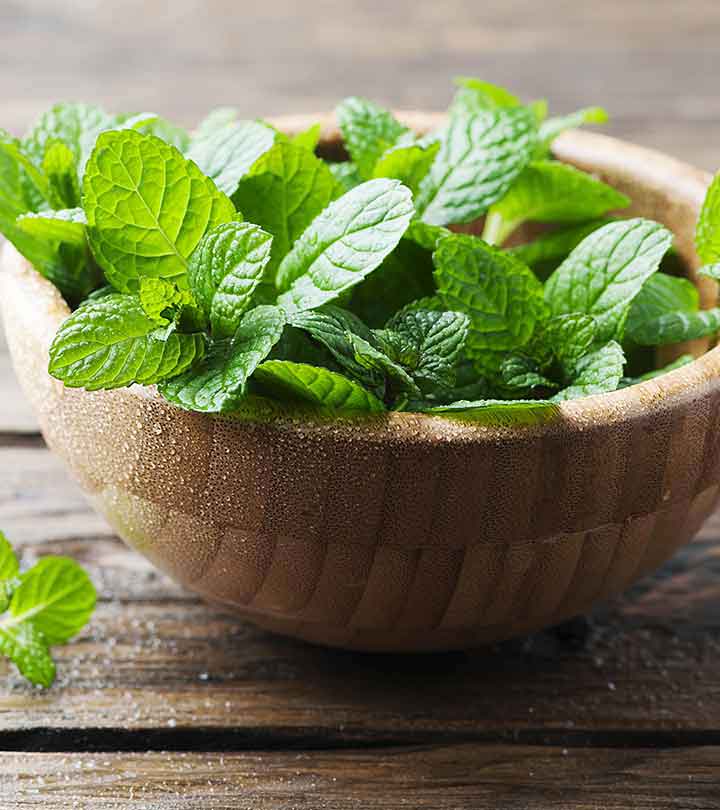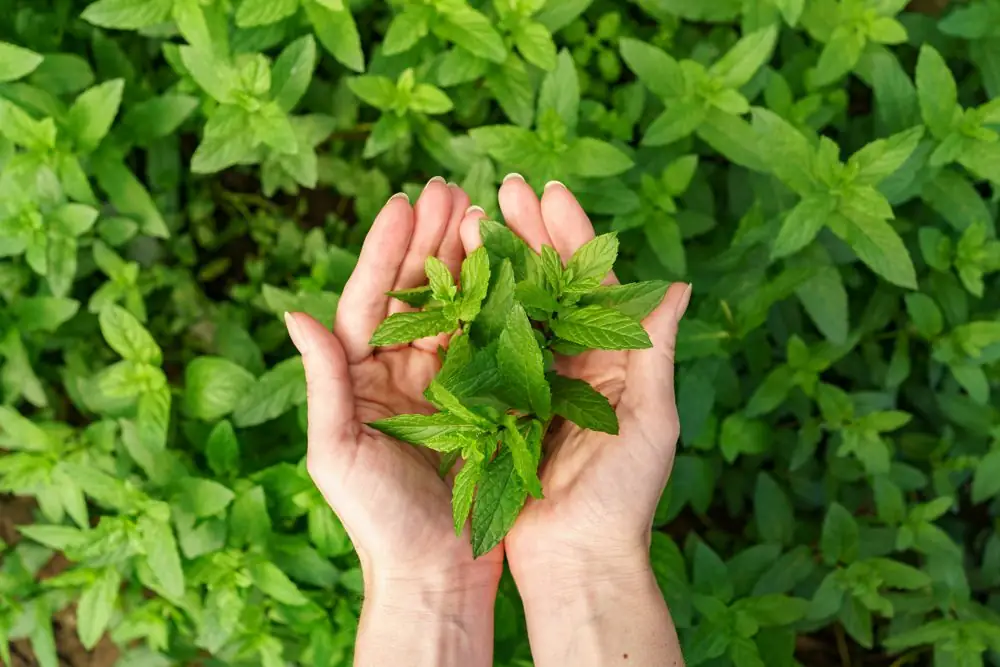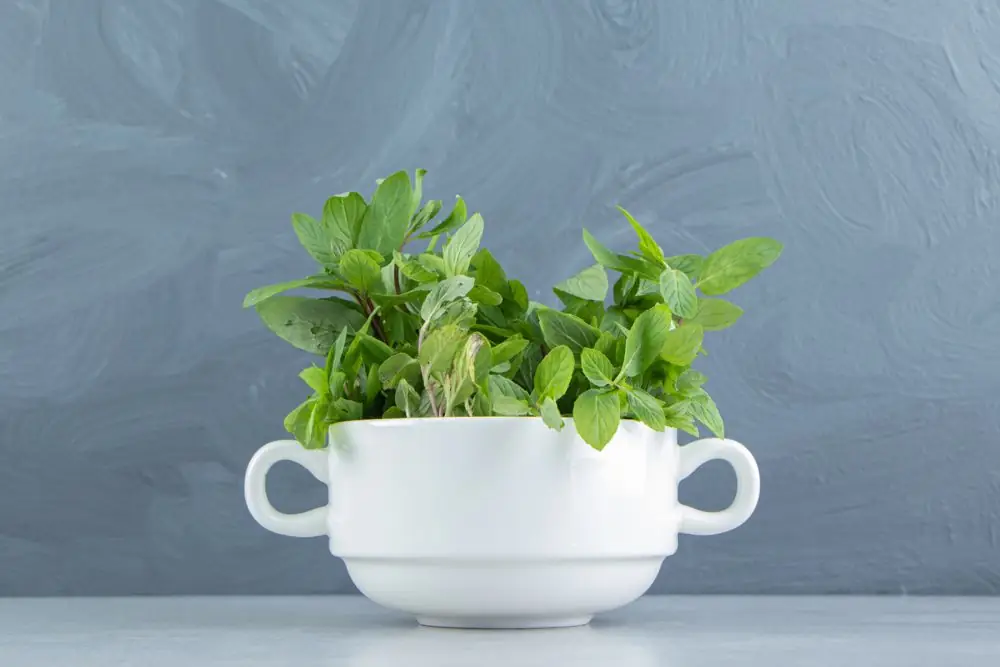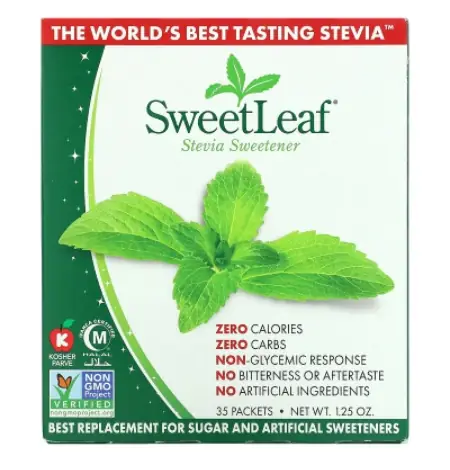A Fragrant Herb to Make You Healthy: Benefits of Mint

Do you know that this refreshing herb can make you healthy? Benefits of mint are substantial and definitely worth knowing: this plant can freshen your breath, stimulate mental activity, relieve stress, improve digestion, and help you get a healthy dose of iron.
Can it also help you lose weight? What is the difference between spearmint and peppermint? What do you use to brew Moroccan tea? Read on, and you will find the answers to all these and numerous other questions.

Health Benefits of Mint Plant
There are more ways in which this plant can help you improve your health than you might think.
Rich in Iron, Manganese, and Vitamin A
While this plant is non-caloric and contains almost no fats or proteins, it is rich in such essential minerals as iron and manganese. Just two tablespoons (or 11 grams) of fresh spearmint contain 7% of the recommended daily intake (RDI) of iron and 6% RDI of manganese.
Iron is an extremely important dietary mineral: lack of it in your diet can lead to the development of anemia. If you suffer from this condition, adding some sprigs of spearmint to your daily menu can be a very good idea.
It should be noted, however, that vitamin C and citric acid are known to improve the absorption of iron you get from spearmint, peppermint, and other plant sources (such as prunes, dried apricots, spinach, potatoes, hazelnuts, cashews, beans, and quinoa). So, to get all the iron you need, eat all these foods alongside lemons and limes, which are very rich in citric acid and vitamin C.
Manganese is an essential mineral that is required, among other things, for healthy bones and the protection of the cells from free radicals. It is also an important cofactor for numerous enzymes.
With two tablespoons of fresh spearmint you also get 9% RDI of vitamin A (essential for your eye health, night vision, and skin) and nearly one gram of dietary fiber that feeds good bacteria in your gut.
Last but not least, this plant is loaded with antioxidants, which can help reduce oxidative stress in the body.

Soothes Irritable Bowel Syndrome
People who suffer from irritable bowel syndrome (IBS) experience such symptoms as gas, bloating, and stomach pain. While IBS treatment often requires the use of medications and major dietary changes, peppermint oil capsules are also a viable herbal remedy.
Peppermint oil contains menthol, a compound that can help relax the muscles in the digestive tract and alleviate IBS symptoms. Studies have shown that taking peppermint oil capsules can significantly improve IBS symptoms, including stomach pain, bloating, and gas.
In a 2010 study patients with IBS who took peppermint oil capsules for 8 weeks reported a significant reduction in the severity of abdominal pain. A 2014 meta-analysis of 9 studies that included 726 patients came to the conclusion that peppermint oil can be used for global improvement of IBS symptoms, and adverse events of such therapy are usually mild and transient.
Eases Indigestion
This plant is also effective in alleviating other digestive issues like upset stomach and indigestion. There are studies that demonstrate that taking peppermint oil capsules with meals can speed up the process of food moving through the stomach, effectively reducing the symptoms associated with indigestion.
To get the full benefits of peppermint oil capsules for digestion, you might need to take them together with caraway oil. In an older 1999 study a combination of peppermint and caraway oil in capsule form was found to have similar effects to traditional indigestion medications.

Boosts Brain Function
There is a promising hypothesis that inhaling the aroma of peppermint oil can improve brain function.
In two older studies it was found that smelling the aroma of peppermint oil can result in improvements in memory. Although additional research is needed to understand the effects (if any) of cognitive health benefits of mint oil, it seems that enjoying its aroma before taking exams could help you get a slightly better grade.
Relieves Breastfeeding Pain
Breastfeeding can be a wonderful bonding experience, but it can also be painful for new mothers who may experience sore and cracked nipples. There are numerous studies that show that applying all kinds of mint products (including oil, gel, and water) to the skin can help reduce pain associated with breastfeeding.
Freshens Breath
Peppermint oil was demonstrated to have antibacterial effects in test tube studies. For this reason, chewing fresh peppermint leaves and drinking peppermint tea can both mask bad breath and kill harmful bacteria that cause it. What’s more, catechins in green tea are also known to inhibit the growth of bacteria that lead to bad breath: one more reason to enjoy the health benefits of mint green tea.
Additionally, chewing fresh peppermint leaves can help promote saliva production, which can reduce dry mouth and prevent tooth decay.
It needs to be said, however, that the above-described health benefits of chewing and eating fresh mint leaves cannot be duplicated by so-called breath mints and mint-flavored chewing gum: these products do not kill harmful bacteria but simply mask bad breath.

Is Hypothesized to Improve Symptoms of PCOS
In a 2020 animal study it was demonstrated that a combination of flaxseed and spearmint extract could improve the endocrine profile of rats with PCOS. Unfortunately, additional research into the properties of spearmint is required to confirm (or refute) these findings.
Fights Bacterial Infections
Menthol, an organic compound that gives mint its cooling sensation, was found to be effective against numerous strains of harmful bacteria. This makes mint leaves and teas a viable natural remedy for colds caused by bacterial infections. What’s more, due to its analgesic properties, menthol is known to create an impression of improving nasal breathing, which can help you endure the symptoms of a congested nose.
Relieves Stress and Anxiety
Menthol can boost the effect of GABA — an important neurotransmitter that has a calming action on the nervous system. For this reason, the health benefits of spearmint and peppermint include reducing fatigue and anxiety levels.
In a 2019 study peppermint essence significantly reduced the pain and anxiety caused by intravenous catheterization in cardiac patients. What’s more, another 2019 study demonstrated that peppermint oil could significantly decrease the severity of migraine.
If you have trouble sleeping, drinking a cup of such tea before bed is one of the better ways to relax and go to sleep faster.
Health Benefits of Mint Leaf: an FAQ
In this section you will find the answers to the most common questions about this healthy plant.
What Are the Health Benefits of Peppermint Plant vs. Spearmint?
Peppermint is a hybrid of spearmint and watermint that has a very high menthol content. For this reason, it is peppermint oil that is used for alleviating the symptoms of IBS and indigestion; peppermint has a more pronounced antibacterial action and demonstrates a more noticeable soothing effect. If you can choose between numerous species of the plant, use peppermint for your teas and beverages.
What Are the Health Benefits of Mint Water?
Mint water is a type of herbal tea that is made by infusing 25-30 fresh or dried leaves of the plant in 4 cups (about 1 liter) of boiling water. When consumed hot, this beverage is usually called mint tea, while its cold version is known as mint water. Very low in calories, this drink will help you stay hydrated throughout the day.
Health benefits of fresh mint tea or water include:
- Aids digestion and relieves stomach pain;
- Promotes relaxation, reduces anxiety, and stimulates concentration;
- Improves dental health and reduces bad breath.

Not only can this drink help you stay healthy in a number of ways, but it is also safe for most people to drink in moderate (not exceeding 10 cups per day) amounts. Pregnant women can drink a few cups of mint water a day without any known risks, but it is best to consult with a doctor regarding the consumption of high amounts of mint water during pregnancy.
While mint allergies are very rare, some individuals may experience allergic reactions like hives or swelling, so it is best to be aware of any potential allergies before consuming this drink. If you have never consumed this drink before, start with small (1-2 cups a day) amounts.
All in all, mint water is a healthy and safe alternative to sugary drinks that is definitely worth including in your diet.
Does Mint Water Help You Lose Weight?
While this beverage doesn’t help you burn calories at a faster rate or feel satiated for a longer time, you can use it as a healthy substitute for soft drinks and cocktails that are rich in empty calories. Still, the efficacy of replacing soft drinks with water is being disputed: more long-term studies that would confirm that this weight management method really works are required.
If you are going to use mint beverages to shed pounds but are not ready to go without the sweet taste, you can use natural non-caloric sweeteners like stevia for your herbal teas:

- Each packet equals 2 teaspoons of sugar in sweetness while containing no calories
- 35 packets
- No bitterness or any other unpleasant aftertaste
- Features nothing but pure water and high-grade stevia leaves

What Are the Health Benefits of Moroccan Mint Tea?
While there is a plant called Moroccan mint (which looks very much the same as regular mint varieties except for its smaller leaves and very high menthol content), what is called Moroccan (or Maghrebi) mint tea these days is usually brewed using green tea, peppermint, and sugar. This healthy beverage offers all the above-described benefits of mint water plus the additional health improvements you get from green tea:
- Promotes relaxation because of copious quantities of L-theanine;
- Very rich in numerous antioxidant compounds;
- Effective against viruses and harmful bacteria;
- Reduces chances of diabetes;
- Lowers down chances of heart disease development;
- Good for weight loss: it suppresses appetite and helps you use calories faster because of its high caffeine content.
As has already been said, to bring down the caloric content of Moroccan tea to the minimum, you might want to use stevia or similar healthy sweeteners instead of sugar.
What Is Known About the Health Benefits of Mexican Mint Leaves?
Coleus amboinicus (also known as Mexican mint, French thyme, Indian borage, and Cuban oregano) is a plant that has a very strong smell, and that can be used to repel mosquitos and mask the strong and not very pleasant odor of fish and mutton. Unlike spearmint, peppermint, and numerous other mints, Coleus amboinicus does not belong to the genus Mentha, so the name ‘Mexican mint’ is really a misnomer.
Coleus amboinicus is very rich in such organic compounds as carvacrol (was found to be effective against 25 pathogenic bacteria) and thymol (in combination with chlorhexidine can be used to reduce plaque and gingivitis) as well as disinfectant.

The Final Say
So, what are the benefits of fresh mint leaves? Here is how you can use them:
- Add them to your salads to get a healthy dose of iron, manganese, and vitamin A;
- Chew them raw to freshen your breath and kill harmful bacteria in the mouth;
- Add them to your meals to improve digestion and soothe the symptoms of irritable bowel syndrome (although peppermint oil capsules can be an even better remedy);
- Infuse them in boiling water to make healthy tea that can be enjoyed instead of soft drinks
- Enjoy their smell to get mentally alert and relaxed.
If you want to stay healthy, the benefits of mint should not be ignored. Keep in mind, though, that no plant or vegetable is a magic bullet: it is extremely important that you have a balanced diet and exercise regularly.